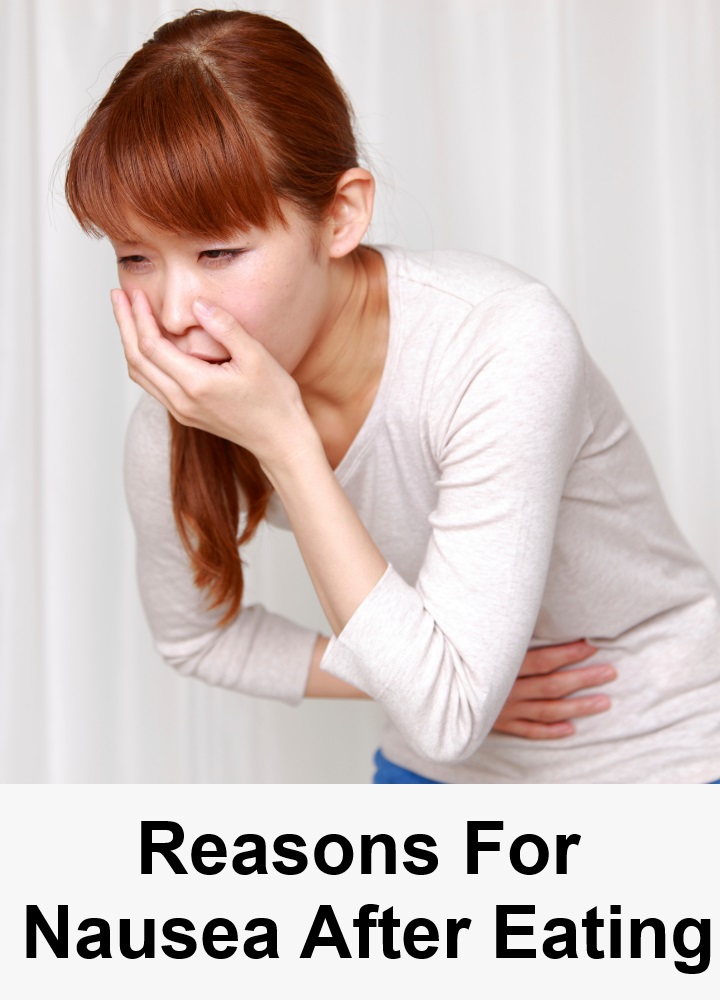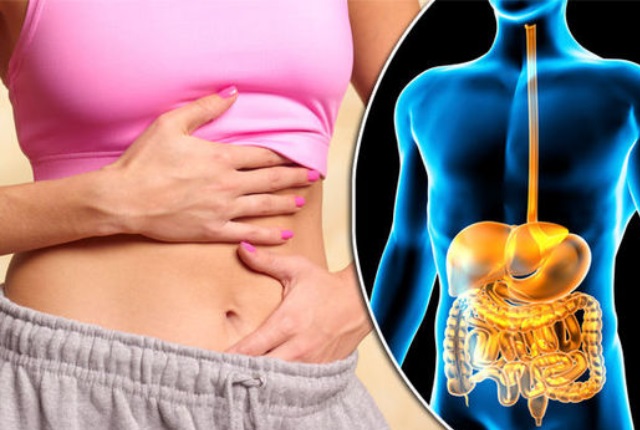Feeling suddenly sick and nauseated after a meal when you were absolutely fine is not fun and can make you anxious. It is better to meet the doctor if you experience such a thing, but most of the time feeling nauseated after a meal is not dangerous unless it is persistent. Nausea after meal can be temporary and just a post meal discomfort that might be associated with the following causes, which can be treated easily with some rest and over the counter medication.
Common Reasons For Nausea After Eating
1. Infrequent Eating
Postponing meals and skipping meals can make one feel nauseated. Long time intervals between meals results in excess acid build up and make you feel sick due to too much acidity when you get your food. To fix this problem, eat small portions at frequent intervals and try to take non-acidic food.
2. Indigestion
Excessive gas in the stomach, burning sensation, nausea all might be a result of disruption in the digestion process. Carbonated beverages, infection, greasy food, overeating, stress, etc might cause indigestion. Staying away from food is not a solution and in fact it might result in more acidity and worsen the condition. Instead, take an antacid and eat smaller portions, try stress relieving techniques, and stay calm.
3. Infection And Food Poisoning
Bacterial food poisoning and viral infections are one of the major causes for stomach sickness and nausea after eating. These conditions are caused due to the intake of contaminated food or water or eating undercooked food. In such conditions, give your bowel some rest and avoid solid food unless you feel comfortable. Take clear liquid frequently to avoid dehydration and related complications.
4. Psychological Factors
Psychological factors such as anxiety, stress, depression, etc have a negative impact on the gut and can cause stomach sickness. The biochemical changes that occur due to the psychological distress can disrupt digestive process and make you feel nauseated. Again, in such conditions, the autonomic nervous system gets activated in response to a meal, which could result in nausea.
5. Allergy
When you eat food that you are allergic to, your body system will trigger reaction and nausea and vomiting are symptoms of such allergic reaction. Intolerance to certain food may develop over time and nausea, indigestion, cramps, diarrhea, hives, throat tightness, shortness of breath are a few symptoms of food allergy reactions. Common allergens are peanuts, gluten, milk, a few seafood, etc. It is advisable to meet the doctor immediately, if you experience food allergy symptoms.
6. Irritable Bowel Disease
Feeling nauseous after eating is one of the signs of irritable bowel disease. Eating causes bowel irritability, which in turn leads to diarrhea and constipation after meals. At times, constipation can alternate with diarrhea. Eating fiber rich food and avoiding coffee and smoking can soothe your bowels.
7. Hangover
Consuming too much alcohol will not only cause hangover, but you will also experience nausea and headache. This is the reason why people who tend to drink too much in the late-night parties feel nauseous. You can drink 1 – 2 liters of water to induce vomiting.
8. Pregnancy
Pregnancy is one of the common endocrinologic causes of nausea in women. Nausea or morning sickness is quite common during early pregnancy and can occur during day or night. Some women may feel nauseous all day long. You can eat small portions of food or avoid smells and foods that trigger nausea to overcome the discomfort.









